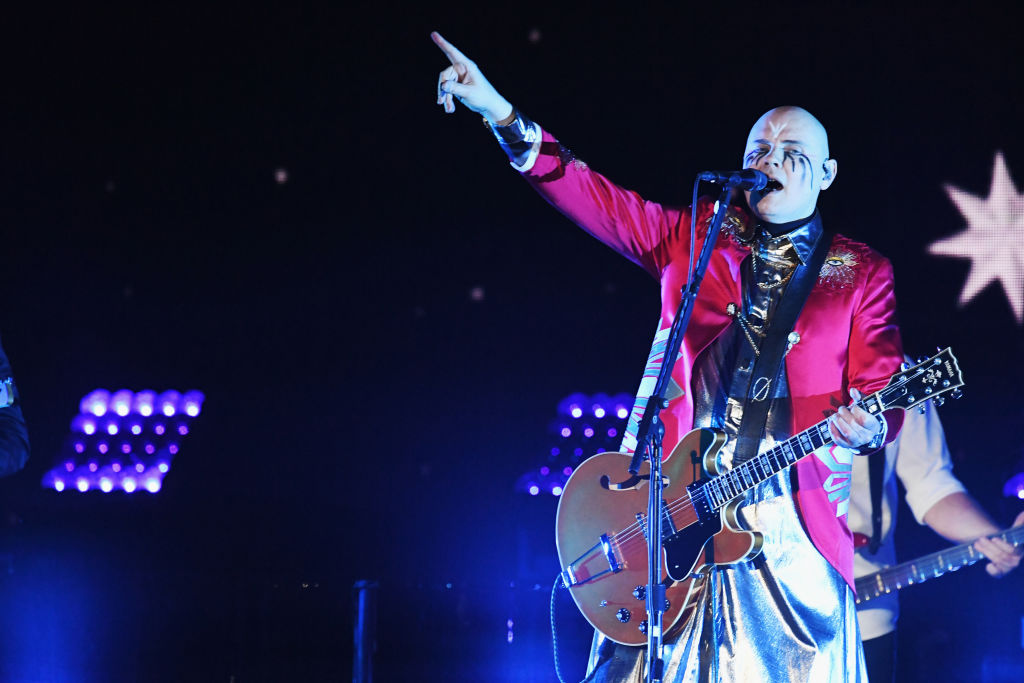Last year, Chicago-born comedian John Mulaney accused the Rock & Roll Hall of Fame of having it in for his hometown. His charge: It refused to induct, or even nominate, a certain alt-rock band formed here in the 1990s.
“It’s ridiculous the Smashing Pumpkins aren’t in,” Mulaney told Rolling Stone. “The Hall of Fame clearly has an anti-Chicago bias. Anyone from Long Island is in — even just regular people — but no one from Chicago.”
This year, the Rock Hall again failed to recognize the Pumpkins. For the fourth year, it also won't induct Rufus, and, by extension, Chaka Khan. John Prine was nominated last year but didn’t get in. Is it possible there's some truth to Mulaney's charge?
If you think Chicago’s place in the rock ’n’ roll pantheon is defined by its contribution to '90s alt-rock, you may carry a lifelong grudge against the Rock Hall. Not even Billy Corgan thinks his band is getting in. “I don’t envision it happening,” he told Alternative Nation last year.
That does not, however, mean the Rock Hall has an anti-Chicago bias. It may not have recognized Chicago music as much as us here think it should, but it hasn’t slighted us, either.
In many genres, Chicago has punched a bit below its weight as a music town. Our musical heritage is not as rich nor influential as that of a number of smaller cities: Detroit, Memphis, New Orleans, Nashville, Seattle, San Francisco, Austin. You could even argue that Prince alone nudges Minneapolis into our league.
Ultimately, Chicago’s greatest contribution to popular music was the development of a style that originated elsewhere. In Chicago, the Mississippi Delta Blues went electric, creating a sound that became the template for rock ’n’ roll. As music critic Robert Palmer wrote in Deep Blues, his essential history of the form, Muddy Waters began playing electric guitar to be heard above the urban din: “An acoustic was adequate for apartment parties, but if a guitarist wanted to cut through the noise in a crowded city joint, amplification was a necessity.”
Most of the Chicago acts in the Rock & Roll Hall of Fame are Delta bluesmen who arrived here on the Illinois Central during the Second Great Migration: Buddy Guy, Howlin' Wolf, Jimmy Reed, Little Walter, Muddy Waters, and Willie Dixon. (In other words, pretty much everyone the Rolling Stones ripped off.) Their impresario, Leonard Chess, was also a transplant, emigrating from Poland as a child.
Born and bred Chicagoans are a little scarcer: Curtis Mayfield, Quincy Jones, some of the Staples Singers, the Paul Butterfield Blues Band, the band Chicago. (Serious question: How can the Rock Hall be anti-Chicago if they let in Chicago?)
If, like John Mulaney, you’re hung up on Chicago’s ’90s rock scene, there's a major name eligible for induction next year: Wilco, who definitely has a better shot at getting in than Smashing Pumpkins. Critics love Wilco — the Atlantic even ran a tenth-anniversary essay about Yankee Hotel Foxtrot — and critics cast the induction ballots. (Like any self-respecting alt-rock musician, Tweedy has slagged the Rock Hall as a “a money-making boondoggle for some people, and sort of a tax scam for the people of Cleveland.” But if Wilco is voted in, he’ll be a sport and play the induction ceremony.)
Wilco also gets extra points for the role of its ancestor band, Uncle Tupelo, in creating the alt-country genre. Jeff Tweedy, Jay Farrar, and Mike Heidorn founded that band in downstate Belleville. After they split, Tweedy moved to Chicago and married Lounge Ax owner Sue Miller. Wilco performed during the club’s legendary last two weeks.
Chicago’s next wave of inductees will probably come from the rappers who emerged here in the last three decades — Common, Kanye West, and Chance the Rapper. So far, the Rock Hall has admitted seven hip-hop acts: Grandmaster Flash and the Furious Five, N.W.A., Public Enemy, Beastie Boys, Run DMC, Tupac Shakur, and this year, the Notorious B.I.G.
Is the Rock & Roll Hall of Fame anti-Chicago, or does it just think Chicago hasn’t done much for rock ’n’ roll since Chess Records closed? If the latter is true, we'll be fine. We’re still making music here, and we’re not just the Home of the Blues. We’re going to get our due in Cleveland, even if it’s not for Smashing Pumpkins.



